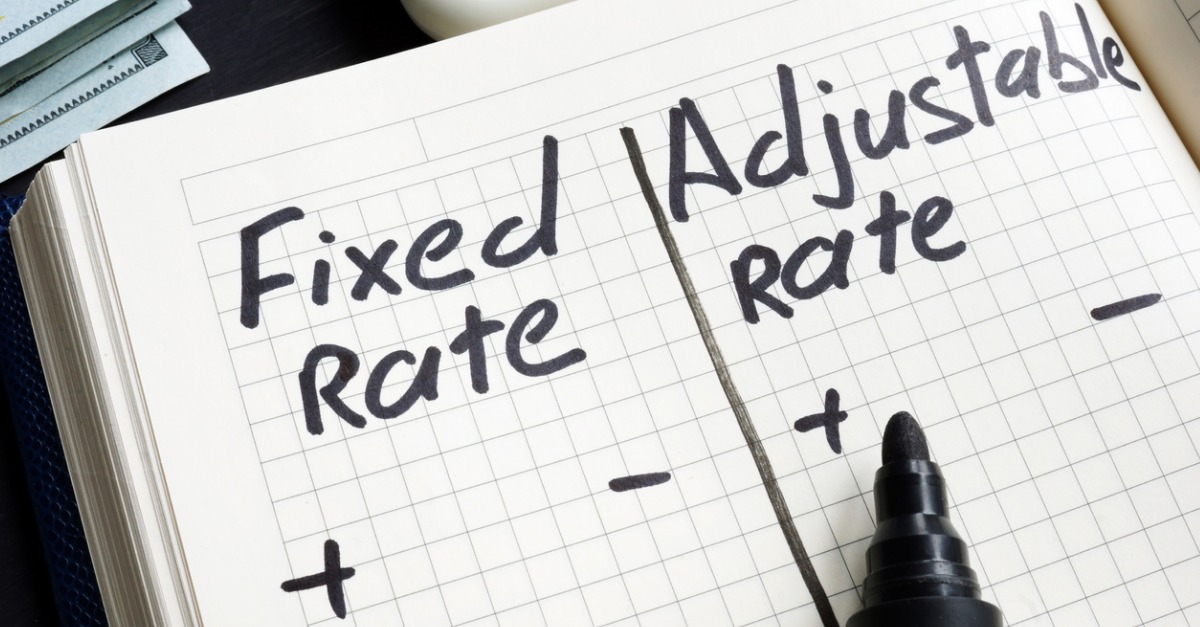
Should You Switch From an Adjustable- to a Fixed-Rate Mortgage?
If you’re looking to lower the interest rate on your existing loan, you may be thinking of refinancing your mortgage. And if you currently have an adjustable-rate mortgage, you may be considering switching gears entirely and taking advantage of a fixed-rate mortgage.
While an adjustable-rate mortgage typically has a low interest rate for the first several years, the interest rate will periodically adjust based on market conditions after that time period has elapsed. This can cause mortgage payments to change dramatically, sometimes with little or no warning.
Further, the rate at the beginning of an adjustable-rate mortgage repayment period is often lower than the rate on a fixed-rate mortgage. This makes them a viable option for homebuyers who plan to move in a few years—or for people who have limited funds for a mortgage now, but expect to have more income or lower expenses in the future.
Pros and Cons of Switching to a Fixed-Rate Mortgage
Some homeowners choose an adjustable-rate mortgage because of the initial low interest rate, but they’re often worried that their payments could skyrocket down the road. If you currently have an adjustable-rate mortgage and your interest rate is scheduled to adjust in the near future, it might make sense to refinance to a fixed-rate loan.
Refinancing your mortgage means that you would be replacing your old loan with a new one subject to different terms. In order to refinance your mortgage and switch to a fixed rate, you would need to meet your lender’s equity and credit score requirements. The interest rate on a fixed-rate mortgage could be lower, but the repayment period might also be different, which could affect your monthly payments.
If you refinanced your mortgage, you would also have to pay closing costs. And it could take years for your lower monthly payments to offset the amount of the closing costs paid to obtain the new mortgage. Furthermore, some mortgage lenders charge prepayment penalties if borrowers refinance before the mortgage expires.
Depending on your lender’s terms, the terms of a new fixed-rate mortgage and how much longer you stay in your house, you might save a lot of money, or little or none, in the long run.
Is Changing Mortgages the Right Move for You?
Switching from an adjustable- to a fixed-rate mortgage could help you avoid the uncertainty and stress of not knowing whether your mortgage payments will fluctuate and by how much, but there are additional costs to consider. Talk to your current lender, research fixed-rate mortgages and get specific figures so that you can decide if changing to a fixed-rate loan or sticking with an adjustable rate makes sense for you.
This article is intended for informational purposes only and should not be construed as professional or legal advice.

